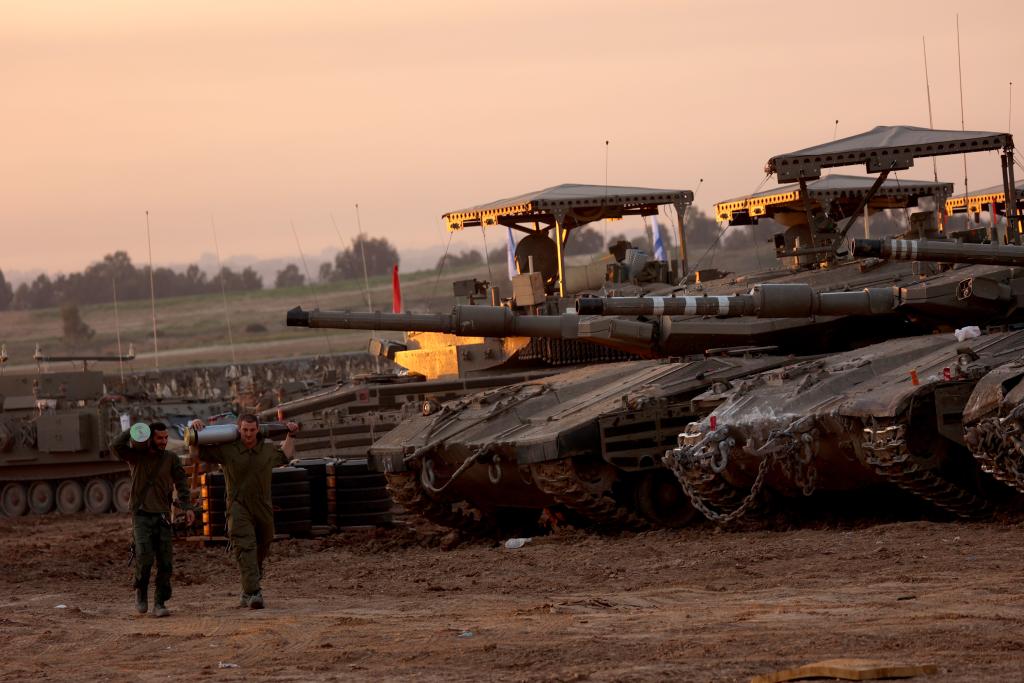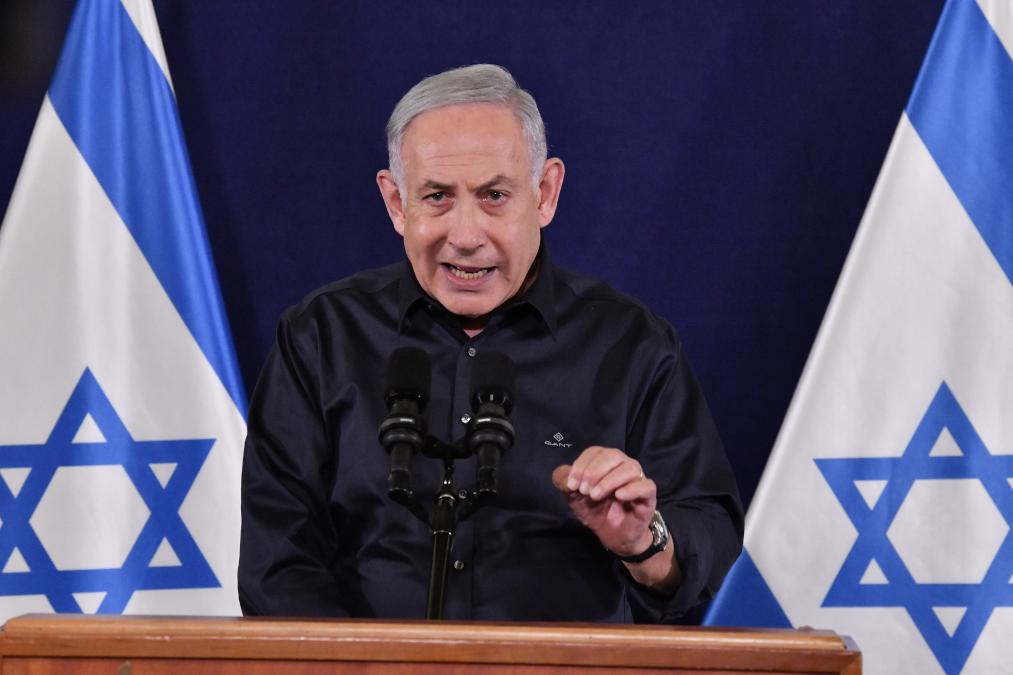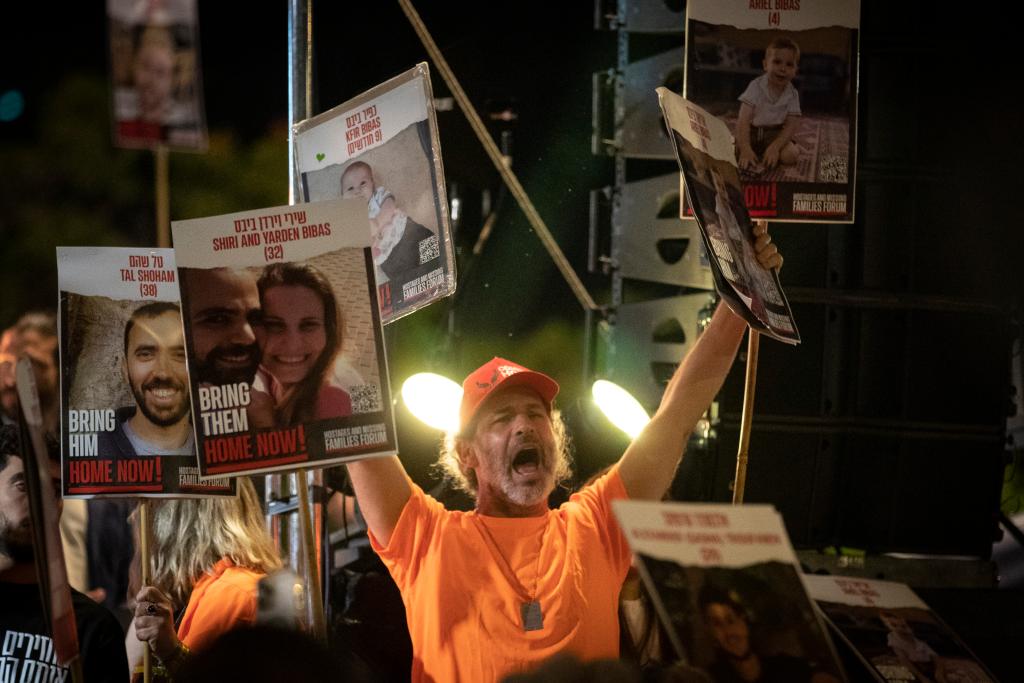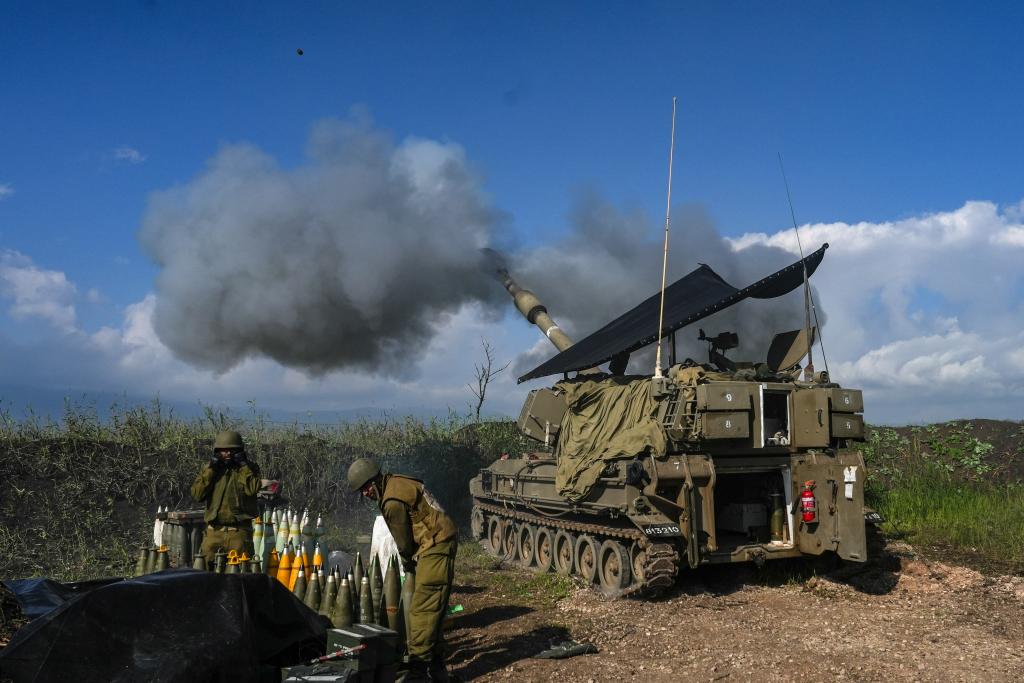After more than three months of fighting, why does Israel still refuse to give up?
Xinhua News Agency, Jerusalem/Ramallah, January 23rd-This is the worst round of Palestinian-Israeli conflict in 20 years-it lasted for more than three months, killing more than 25,000 people in the Gaza … Just a few hours after the Palestinian health department released this worrying figure, Prime Minister Benjamin Netanyahu issued a tough statement, "completely rejecting" Palestinian Islamic Resistance Movement (Hamas)’ s demand for a ceasefire in exchange for the release of detainees, and there is still no sign of a ceasefire in this round of conflict.
At present, the serious humanitarian crisis in Gaza and the spillover of conflicts have ignited wars in many places in the Middle East … Why has Israel refused to give up? Where will the Palestinian-Israeli situation go next? Xinhua News Agency reporters will help you solve the problem-

   This is an Israeli army shot on the Israeli side of the Gaza border on January 21st. Xinhua News Agency (photo by Jill Cohen Magen)
For three big goals
Israel continues to be tough.
In the early morning of October 7, 2023, Israeli armed men raided military and civilian targets in Israel from the Gaza Strip. Hamas claimed that about 1,200 people were killed and more than 200 people were held hostage. Hamas said that at least 5,000 rockets were fired into Israel, and the Israeli government immediately declared a "state of war". There was a great disparity in military strength between Palestine and Israel, and Israel was suddenly hit hard and humiliated. At the same time, facing strong domestic pressure, it began to launch fierce military retaliation against the Gaza Strip, and the death toll in the Gaza Strip hit a new high.
After the conflict broke out, Israel set three major goals: the elimination of Hamas, the release of all detainees, and the Gaza Strip no longer posed a security threat to Israel.
On the 22nd, the Israeli army suffered "the day with the highest death toll". The Israeli army issued a statement on the 23rd, saying that 21 Israeli reserve soldiers were killed in a building explosion in the central part of Gaza the day before. According to Israeli media, this is the highest single-day death toll of Israeli troops in the Gaza since the beginning of the current Palestinian-Israeli conflict.
Analysts believe that this round of Palestinian-Israeli conflict broke out suddenly and fiercely, and Israel suffered "heavy losses" than before, so it was shrouded in great insecurity. According to what the Israeli government and military leaders have said before, as long as the goal has not been achieved, the military offensive will not end.

   On November 18, 2023, Israeli Prime Minister Benjamin Netanyahu attended a press conference in Tel Aviv. Xinhua News Agency/Gini Photo Agency
Netanyahu said in a speech on the 21st that only a "complete victory" can ensure the destruction of Hamas and the return of detainees to their homes. He stressed that the Gaza Strip must be demilitarized and placed under Israeli "comprehensive security control". He will not compromise on "Israel’s full security control over all territories west of the Jordan River".
Netanyahu also said that he has withstood the pressure from home and abroad to change his position. As long as he remains the prime minister of Israel, he will continue to adhere to this position.
According to the analysis of the Jerusalem Institute for Strategic and Security Studies, ensuring security remains Israel’s "top priority", and fighting against Hamas will be regarded as a priority. Only by winning a military and political victory can Israel create conditions for the release of all detainees.
Violent changes in public opinion
Peace is far away.
On the first day of the conflict, Hamas’s surprise attack made Israeli casualties much more serious than before, which objectively stimulated the change of Israeli public opinion. According to a statistic released by the Israeli media, about one-third of Israelis "turned right" after the outbreak of this round of conflict, and did not want the Israeli army to cease fire. A recent poll by the Israel Institute for Democracy also shows that more than half of Israeli Jews do not support the "two-state plan".

   On December 2, 2023, a man attended a rally in Tel Aviv, Israel, calling on the Israeli government to take measures to release all the people detained in Gaza as soon as possible. Xinhua News Agency reporter Chen Junqing photo
The new right-wing government led by Netanyahu came to power at the end of 2022. Before the outbreak of this round of Palestinian-Israeli conflict, it had triggered large-scale demonstrations and gradually lost people’s hearts because of the forced judicial reform. After the conflict broke out, the voice calling for Netanyahu’s resignation was endless. According to a poll, only 15% of the Israeli people hope that Netanyahu will continue to serve as prime minister after the conflict.
In the face of the call for "stepping down", Netanyahu responded that he has no plans to resign and will continue to be in power after the end of this round of Palestinian-Israeli conflict. He also stressed: "The only thing I need to resign is Hamas".
In the square in front of the Israeli Defense Ministry in Tel Aviv, reporters often see demonstrations-a large number of people call on Netanyahu’s government to make the release of Gaza detainees the top priority, instead of focusing on military attacks. Fayyad Abbas, an Israeli expert, believes that under the pressure of the families of the detainees, Netanyahu may consider a new round of personnel exchange, but there is little possibility of a "complete ceasefire" in the near future.
Halevy, chief of staff of the Israel Defense Forces, said in January when inspecting Israeli troops deployed in the West Bank: "It is certain that we will fight in the Gaza throughout 2024."
To deal with seven fronts.
Conflict spillover is hard to stop.
On the second day after the current Palestinian-Israeli conflict broke out, Israel continued to exchange fire with Hezbollah, which supports Hamas, in the north. Since the beginning of this year, the United States and Britain have successively bombed the armed targets of Houthi in Yemen in retaliation for the latter’s attack on cargo ships in the Red Sea waters, and Iran has launched missiles to cross-border attack on "terrorist organizations" targets in Pakistan and other countries and Israeli intelligence agencies in Iraq … All these reflect that the spillover effect of the Palestinian-Israeli conflict is constantly spreading.
According to galante, Israel’s defense minister, in early January, Israel is responding to attacks from seven fronts: Gaza, Lebanon, Syria, the West Bank, Iraq, Yemen and Iran, and any "forces that take hostile actions against Israel will become targets". Netanyahu also stressed on the 21st that Israel is continuing to fight on many fronts and in many fields. "No matter who tries to hurt us, we will hurt him."

   On January 4, on the northern border of Israel, a self-propelled howitzer of the Israeli army opened fire on southern Lebanon. Xinhua News Agency (photo by Aillard Margolin/Gini Photo Agency)
On January 1st, the IDF announced that it would gradually withdraw five brigades and thousands of soldiers from Gaza in the next few weeks. The analysis believes that this move meansIsrael’s military action against Hamas has entered a stage of low intensity but long time consuming.And prepare for Israel’s multi-line war, especially the possible escalation of war with Hezbollah in the north.
Hillel frisch, a professor of political science and Middle East history at Barilan University in Israel, said that this round of conflict has gone far beyond the contest between Palestine and Israel, and Israel is in a "geostrategic storm". Until the later period of the war with Hamas, Israel will always face threats from many fronts, and its ally, the United States, will play an important role in the complicated situation.
Osama Chaath, a professor at Palestinian Al-Quds University, believes that Netanyahu’s government will not agree to a complete ceasefire in the Gaza in order to explain to the extreme right-wingers in the government. However, with the United States entering the election year, the spillover effect of the war in Gaza has affected the interests of the United States in the Middle East, and the death toll in Gaza is still rising rapidly, which also puts huge "humanitarian pressure" on Biden’s government. (Reporter: Wang Zhuolun, Liu Weijian; Editor: Lu Yu, Wang Shen, Xu Xiaolei, Shen Haoyang)